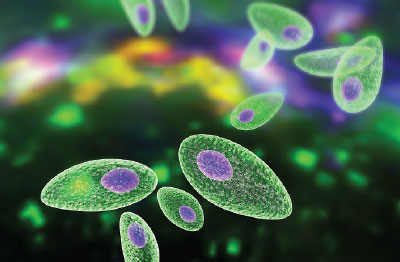Immunotherapies for Schizophrenia, Bipolar Disorder Not Quite Ready for Prime Time
Abstract
Attempts to translate knowledge about inflammation’s possible role in psychiatric illness to the clinic have proved frustrating so far.
The intersection between the immune system and psychiatric illness has been a long time coming and still has a long way to go, said Mark Weiser, M.D., at APA’s 2018 Annual Meeting last month in New York.

“There are many hypotheses about the origins of schizophrenia, but few are strongly based on conclusive data,” said Weiser, a professor of psychiatry at Tel Aviv University and chief psychiatrist at Sheba Medical Center. Among them is inflammation. “Inflammation was put forward as one possibility as far back as the 1870s, linked to typhoid, malaria, or influenza, and it has drawn more attention again over the last 20 or 30 years.”
The evidence for immune system involvement comes from several directions, he said. Besides genetic and familial factors, recent epidemiology has found environmental effects on risk that could involve the immune system, such as being born or raised in urban versus rural areas or being born in the winter when infectious illness is more common. The presence of antibodies to Toxoplasmosis gondii in mothers whose children develop schizophrenia or to maternal exposure to influenza are by now familiar. Also, at least one of the 108 genes recently discovered to be associated with schizophrenia appears to be related to the immune system. Abnormal levels of certain cytokines have been documented in patients with schizophrenia, and people with high levels of C-reactive protein (CRP), a marker for inflammation, are more likely to be hospitalized for schizophrenia.
There are also hints that autoimmune diseases are associated in different ways with psychosis, said Weiser, who is also associate director for treatment trials at the Stanley Medical Research Institute in Kensington, Md., which funded many of the studies that Weiser discussed. Lupus increases risk while rheumatoid arthritis apparently confers a reduced risk. Schizophrenia and autoimmune diseases like multiple sclerosis often have a similar age of onset and follow a relapsing-remitting course.
Given that background, researchers have been testing drugs targeting the immune system to observe their effects on the symptoms of schizophrenia, said Weiser. Most produced indifferent results in small trials. For instance, an initial study of the antibiotic minocycline indicated positive effects on positive and negative symptoms, but a second study found no improvement.
Similar equivocal outcomes have been recorded as well for acyclovir, aspirin, azithromycin, fingolimod, methotrexate, N-acetyl cysteine, intravenous immunoglobulins, and monoclonal antibodies. Oddly, one intriguing observation has been that patients with higher levels of CRP seemed to do better in some of these trials.
A second speaker in the session reported on a study of probiotics and their effects on patients with mania. Probiotics are live microorganisms, most commonly the bacteria Lactobacillus and Bifidobacterium, and usually taken as foods or in pills. Faith Dickerson, Ph.D., M.P.H., and colleagues at Sheppard Pratt Health System in Towson, Md., randomized 66 patients admitted to the hospital for symptoms of mania.
In addition to their regular psychiatric medicationst, half the patients also received a probiotic containing nonpathogenic anaerobic bacteria previously shown to modulate the immune system response to harmful antigens in the gut, said Dickerson. “Probiotics affect the intestinal microbiome and generally reduce intestinal inflammation.”
In fact, patients on the probiotic had about a 2.5-times reduction in the rate of rehospitalization in the six months after hospital discharge, said Dickerson. However, results showed no difference in the severity of psychiatric symptoms, perhaps because the monthly monitoring schedule did not capture briefer, more acute episodes of mania.
Mikhail Pletnikov, M.D., Ph.D., a professor of psychiatry, neuroscience, and molecular and comparative pathobiology at Johns Hopkins University, described his initial work in mice in parallel with human trials like Dickerson’s. Gaps in the field exist and researchers need to expand the limited neurobiological and immunological understanding and learn the mechanisms of action, he said.
“Animal models can provide a more sensitive test system for preclinical evaluation of probiotics and for identifying the mechanisms of probiotics action,” he said. “With probiotics you can engineer behavior in genetically modified mice because the astrocytes in the brain are sensitive to the probiotics. We don’t mimic psychiatric disorders, but we’d like to use animals just to learn how probiotics work.”
As work continues, Pletnikov hopes to further identify the effects in the gut and the brain of mutations in his mouse colonies. Ultimately, these animal studies will be able to inform future clinical trials in humans.
Overall, the session’s reports suggested progress along the winding path through the immune system that may—someday—lead to a better understanding of schizophrenia and new ways to treat it. ■



